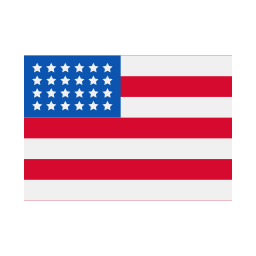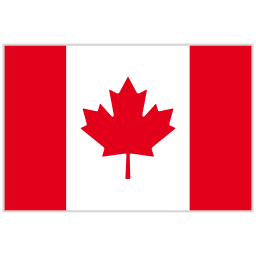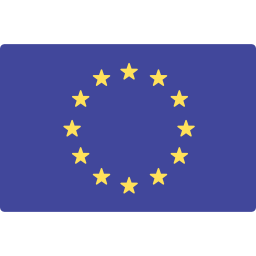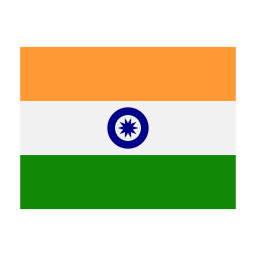LITHUANIA – GENERAL INFORMATION

GEOGRAPHY
Lithuania, officially the Republic of Lithuania and the largest of the Baltic States, is situated on the eastern shore of the Baltic Sea to the east of Sweden and Denmark, in northeastern Europe. It is bordered by Latvia to the north, Belarus to the southeast, Poland to the southwest, and Kaliningrad, a Russian enclave, to the west. The Nemunas River and some of its tributaries are used for internal shipping. The terrain is marked by numerous small lakes and swamps, and a mixed forest zone covers 30% of the country. Dense rivers fill the landscape that shifts between flat plains and rolling hills. There are 2,800 lakes throughout the region occupying around 1.5% of the country’s territory. According to some geographers, Lithuania’s capital, Vilnius, lies at the geographical center of Europe while others point to the village of Bernotai just north of the capital.
HISTORY

Baltic tribes, made of a distinct Indo-European ethnic group, populated the area now known as Lithuania during the 7th and 2nd centuries BC. The descendants of these early tribes are the present-day Lithuanian and Latvian nations. It wasn’t until 1009 AD that the name of Lithuania first appeared in European records, when it was mentioned in the German manuscript Annals of Quedlinburg. The state of Lithuania was established between the period of 1236-1263 AD. During this time, the Baltic tribes were united under Duke Mindaugas, who in 1253 became Lithuania’s first and only king in its history. This unification of the Baltic tribes gave them a better advantage in resisting the continued expansion of the Teutonic Knights. Forming alliances and conquests, Lithuania was able to expand its territory to include Belarus and Ukraine and eventually became the largest state in Europe by the end of the 14th century. Lithuania’s capital city of Vilnius was founded by Grand Duke Gediminas, who took control after Mindaugas was assassinated as a result of a civil war.
In 1386, Lithuania formed an alliance with Poland which led to a union through a common ruler. Lithuania and Poland officially became a single dual state in, the Polish-Lithuanian Commonwealth, in 1569. This lasted until 1795 when its remnants were partitioned by surrounding countries. After World War 1, Lithuania regained its independence, but was then annexed by the USSR in 1940. Although many countries including the United States did not recognize the annexation by the USSR, it wasn’t until March 11, 1990 that Lithuania became the first of the Soviet republics to declare its independence. Moscow, however, did not recognize Lithuania’s independent statehood until September of 1991 after an abortive coup removed Moscow’s government. In 1993, after the last of the Russian troops left the territory, Lithuania began rebuilding its economy and prepared to join the Western European institutions. Lithuania became the 141st member of the World Trade Organization on May 31, 2001. Continuing its desire to be part of the West, Lithuania became the first of the Baltic states to apply for membership in the North Atlantic Treaty Organization (NATO), and officially joined on March 29, 2004. A few months later on May 1, Lithuania joined the European Union (EU).
THE PEOPLE
Lithuanians are neither Slavic nor Germanic, although the union with Poland and the colonization by Germans and Russians has influenced the culture and religious beliefs of Lithuania. Most Lithuanians and ethnic Poles belong to the Roman Catholic Church.
SOCIAL CONVENTIONS
Western style clothing is worn, while traditional clothing may be worn at festivals. Drinking vodka (for men only) is common during most social visits and guests are expected to be punctual. Many Lithuanians live in apartments and maintain a small cottage in the country where they can grow fruits and vegetables.
LANGUAGES
Lithuanian has been the official language of Lithuania since 1989. English is usually spoken in hotels servicing international travelers. While Lithuania was a member of the U.S.S.R., Russian was the official language; many Lithuanians speak Russian as a second language. The resident Slavic populace generally speaks Russian or Polish as a first language.
GOVERNMENT
Parliamentary Democracy and member of the European Union
Semi-presidential republic
TIME ZONE
UTC + 2 – (observes summer daylight savings time)
ELECTRICITY
230V supply voltage and 50Hz
Plugs and Sockets Type F
CLIMATE
Winter time may include heavy snowfall and can be very cold between the months of November midway through March. Spring and autumn experience moderate weather conditions while summers are a bit warmer. Rain occurs year around and peaks during the month of August.
Clothes to Wear:
The warmer months are May, June, July, August, September and October. It can rain throughout the year, so you may want a light rain coat. We usually don’t recommend traveling long distances with an umbrella. If you feel you need an umbrella, rather purchase one overseas. Pack some smart layered clothing. Even in summer it can get cool.
From November it turns colder and wetter. Snow is possible. January and February are the coldest months. Pack some warm layered clothing, a coat, gloves, warm hat and scarf. Even in the summer months of June, July and August, it can be cool some days and in the evenings. Clever layering is the key to dressing for changeable weather.
LOGISTICAL
Entry & Exit Requirements:
Lithuania is a party to the Schengen Agreement. Visit the Embassy of Lithuania website for the most current visa information. For US and Canadian residents who are not US or Canadian citizens (green-card-holders) with foreign passports please consult https://www.schengenvisainfo.com/ for correct European Union visa rules.
Passports should be valid for at least six months beyond your stay. You must apply for temporary residency if you plan on staying in Lithuania for more than 90 days within any six-month period. Processing time for a residency permit can take more than 90 day. The Lithuanian authorities recommend applying for a residency permit prior to traveling.
Children traveling unaccompanied must have written permission from at least one parent or guardian to travel outside the country. This does not apply to visitors.
HIV/AIDS RESTRICTIONS: The U.S. Department of State is unaware of any HIV/AIDS entry requirements for visitors to or foreign residents of Lithuania.
Embassy Locations:
U.S. Embassy Vilnius
Akmenu Gatve. 6
Vilnius, Lithuania
LT-03106
Telephone: +(370) (5) 266-5600
Emergency After-Hours Telephone: +(370) (5) 266 5500
Fax: +(370) (5) 266-5590
consec@state.gov
Canada Embassy Vilnius
Business Centre 2000,
Jogailos St. 4, 7th Floor
Vilnius 01116
Lithuania
Telephone: +(370) (5) 249-0950
For emergency consular assistance, call the office of the Canadian Embassy in Lithuania, in Vilnius, and follow the instructions
Fax: +(370) (5) 249-7865
vilnius@canada.lt
Health:
Medical care in Lithuania has improved, but facilities may be limited outside urban areas. Medical facilities do not always meet Western standards.
You should obtain insurance that covers medical services from a private Lithuanian hospital or clinic.
Payment is expected upon admission at private hospitals.
Tick-borne encephalitis (TBE) and Lyme disease are widespread throughout the country. Prevention of tick bites is important for those with any degree of outdoor exposure, even in parks in towns and cities.
Use insect repellents containing either 20% DEET, picaridin, oil of lemon eucalyptus or IR3535, which will help diminish bites from ticks.
TBE vaccine is only available in Europe. It is recommended for any travel that includes hiking, camping, or similar outdoor activities in rural wooded regions of risk areas. Transmission season is between April and October.
Elderly travelers who require medical care may face difficulties.
The Lithuanian government does not require HIV testing for U.S. citizens. Sexually transmitted diseases are a growing public health problem.
Rabies exists in most of the country and is highest in the districts bordering Belarus. Fox, raccoon, dog, cat, and bat bites or scratches should be taken seriously and post-exposure prophylaxis sought even in those already immunized.
Rabies immunization is recommended for young children and those planning a prolonged stay in rural areas. Vaccination is recommend also for shorter stays, if there is occupational exposure, or if you will be traveling to locations more than 24 hours’ travel from a reliable source of human rabies immune globulin and rabies vaccine for post-exposure treatment. It is also recommended for adventure travelers, hikers, cave explorers, backpackers, and all travelers involved in any activity that might bring them into direct contact with bats.
Medical Insurance: You can’t assume your insurance will cover you when you travel. Understand your regular U.S. health insurance may not cover doctor and hospital visits in other countries. Or may not make timely payments for services provided. Take out additional coverage for your trip if your policy doesn’t cover you when traveling. It’s very important to find out BEFORE you leave whether your medical insurance will cover you overseas. You need to ask your insurance company two questions:
- Does my policy apply when I’m outside of the United States?
- Will it cover emergencies like a trip to a foreign hospital or a medical evacuation?
You should also carry proof of a medical insurance policy contracted for payment of all costs of hospitalization and medical treatment in Lithuania. Check the health insurance section of the Embassy of Lithuania website for more information.
Information on vaccinations and other health precautions, such as safe food and water precautions and insect bite protection, may be obtained from the Centers for Disease Control and Prevention’s (CDC) hotline for international travelers at 1-800-CDC-INFO (1-800-232-4636) or via the CDC website at http://wwwnc.cdc.gov/travel. For information about outbreaks of infectious diseases abroad, consult the infectious diseases section of the World Health Organization (WHO) website at http://www.who.int/topics/infectious_ diseases/en/. The WHO website also contains additional health information for travelers, including detailed country-specific health information.
BANKS & CURRENCY
Banking hours are between 8:00am to 3:00pm. Currency is in Euros.
COMMUNICATION
Country code: 370
Internet country code: .lt
Cell Phone Usage:
Please contact your cell phone provider to determine whether your contract includes coverage in the country you are visiting. Depending on your contract you may have to add international services and/or country specific services.
ENTERTAINMENT
Food & Drink:
Most of the delicacies in Lithuania are suited for its cool and moist climate. Barley, potatoes, rye, beets, greens and berries are all locally grown. German culture has had an influence on Lithuania bringing in pork and potato dishes. Although beef, lamb, chicken, turkey and duck are all meats you can find in Lithuania, the most popular meat is pork. Smoked eel is a popular entre in the Baltic. Other popular dishes include Skilandis, a smoked meat, and Salti barsciai, a cold soup. Midus is a popular mild alcolholic drink in Lithuania made from honey.
Nightlife:
Cinemas can be found in all towns. Lithuanian theatres, most of which are concentrated in the capital, are also renowned. The Jaunimo teatras in Vilnius are famous throughout the country. Opera and ballet are staged in the city at the Vilnius Opera Theatre and Kaunas has a Musical Theatre. Puppet shows are staged for children in Vilnius and Kaunas. There are restaurants with live music as well as numerous discos and nightclubs with variety shows in the larger towns.
Shopping:
Baltic amber can be purchased in various forms, especially jewellery. Linen goods, clay pots and local crafts are also good buys. National artists sell their works in specialised art galleries in major towns.
Shopping hours: Grocery shops open Mon-Fri 8:00am – 8:00pm.
BAGGAGE
Baggage rules for international and domestic air travel have changed much in recent years, differ from carrier to carrier and these days even may cover your on-board bags. Checking luggage may cost a separate fee or may be free depending on your personal status with the carrier. We therefore encourage you to read your ticket’s small print and/or contact your carrier for exact rules.
TIPPING
Most restaurants and bars already include a 10% service charge in the bill. It is customary to leave a bit extra for good service. When the service charge is not included in the bill, 10-15% is the general rule. Tips are not expected by taxi drivers, although most people tell the driver to keep the change. Airport and hotel porters should receive the equivalent of US$ 1.00 per bag.
LAUNDRY
Most hotels will arrange affordable laundry services for guests.
PHOTOS & VIDEOS
In some countries you must refrain from photographing sites such as Military bases and industrial installations. Also be aware of cultural sensitivities when taking pictures of or near churches and other religious sites. It is always courteous to ask for permission before taking photographs of people.
USE OF DRONES
The use of drones is being legislated by many countries. In some cases, drones are already forbidden, and their unauthorized use may carry severe penalties. If you plan to travel with a drone, please contact the embassy or consulate of the country you wish to visit.




